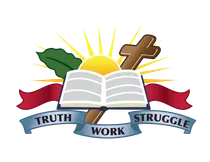Frequently Asked Questions [FAQs]
NO! Although the church has its roots in the Polish immigration (at the end of the 19th century) it is an international Church made up of members from different nationalities and many ethnic backgrounds.
The Holy Mass is the central act of worship in all churches of the Catholic Community, including the National Catholic Church. The Mass is the Sacrifice of the New Testament and is celebrated completely in the language of the people.
Canon 844.2 states: “Whenever necessity requires or genuine spiritual advantage suggests . . . it is lawful for the faithful for whom it is physically or morally impossible to approach a Catholic [meaning Roman Catholic] minister to receive the sacraments of penance, Eucharist and anointing of the sick from Non-Catholic ministers [which includes the PNCC] in whose churches these sacraments are valid.”
In the text of the Joint Declaration of Unity, authored by our two churches in 2006, appear the words: “Furthermore, we recognize each other’s ecclesial character and sacraments, allow a certain amount of sacramental sharing and maintain many of the same traditions.” No, we are not in “full communion” with the Roman Church, which dictates being in communion with the pope. But consider this: if those of the Roman Catholic faith are allowed to receive from our altars (even under some very specific restrictions), then our Communion must be valid. It cannot and is not only valid “some of the time and not at other times.” The PNCC is in communion with Jesus Christ, the Son of God, Who instituted and freely gave to us His most precious Body & Blood at the Last Supper. We need no other earthly intermediary between us and God. Jesus is sufficient. Anyone who denies this fact speaks only in falsehood.
Holy Communion is given under two forms, Bread and Wine, which are the Body and Blood of Jesus Christ. The principal method used is intinction, which simply means that the Sacred Host is dipped into the Consecrated Wine and administered to the faithful at the altar. Only Priests and Deacons administer the Eucharist and it is always placed on the tongue, not in the hand.
A humble confession of our faults to the Almighty God, followed by the assignment of penance and absolution given by the priest, is the way the congregation obtains forgiveness of its sins. The sacrament may be administered in one of two ways: public or private. Private confession is required for all members under the age of sixteen. Public confession is a part of every Mass. In this form, the faithful confess their sins directly and privately to God. The entire congregation then recites the Prayer of Confession together.
The utilization of birth control is a matter of personal judgment for husband and wife. It is not the responsibility of the church to tell its communicants how many children they must or must not have. Marriage serves other major purposes besides the procreation of children.
No. Abortion is morally wrong, for it is the ending of a life that has already begun. The church does not sanction it.
Yes. There are no discriminatory regulations against those who have suffered from a divorce; divorced people may participate in Mass and receive Holy Communion. The Church has an obligation to lend its support and ministry to those who have divorced, as it would to casualties of other social ills.
Because it is a perfectly natural thing for a man to do. The church sees no moral reason to forbid a man to receive the Holy Sacrament of Matrimony simply because he is a priest. Tradition tells us that all but one of the twelve apostles were married. Popes, bishops, and priests of the early church were all married men. Many believe that a married priest is more likely to understand the problems of marriage and child rearing because he has gone through them.
It is governed in accordance with its Constitution. In matters of faith, morals, and discipline, bishops and priests possess the authority to explain and reach the doctrinal position of Christ’s Church. The legislative authority of the Church is vested in the General Synod, the Special Synod, the Diocesan Synod and the Parish Meeting. In financial and administrative matters, the Parishioners possess administrative levels: parish, diocese, and church-wide. Synods are required by the Constitution to be held every four years. Diocesan Synods are held between General Synods.
Spiritual Duties:
- Worship, love and obedience to God expressed by private prayer
- Active participation in the corporate worship of the Church
- Active participation in the sacramental life of the Church
- Proper rearing of children by the good examples of parents and guardians.
Material Duties:
- Comply with enactments of General, Special, and Diocesan Synods
- Comply with financial obligations adopted by the Parish, the Diocese, and the Church
- Endeavor to make free will offerings as the needs of the Church and the Parish require
- Actively support Parish organizations and activities through donations of time and talent
